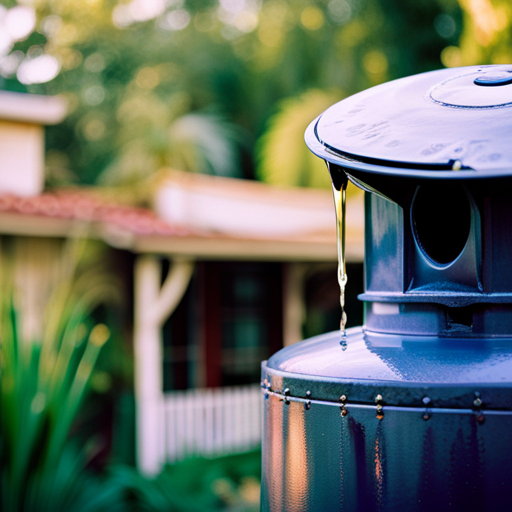Are you curious about the quality of San Francisco’s water and the efforts being made to conserve it? Well, you’re in luck!
San Francisco’s water is considered soft, with an average hardness of 47 ppm, and is sourced from Hetch Hetchy Reservoir and local groundwater basin.
The San Francisco Public Utilities Commission (SFPUC) is responsible for providing water to San Francisco and surrounding areas, and they are dedicated to reducing water waste and increasing the use of recycled water.
Despite the high quality of San Francisco’s water, conservation measures are still necessary due to recurring droughts and a growing population.
In this article, we will explore the basics of San Francisco’s water, including its softness and sources. We will also dive into the various water conservation efforts being made in the region, and how they are helping to ensure clean and safe water for everyone.
So, sit back, grab a glass of San Francisco’s soft water, and let’s dive in!
Key Takeaways
– San Francisco’s water is soft with an average hardness of 47 ppm and is sourced from Hetch Hetchy Reservoir and local groundwater basin.
– San Francisco Public Utilities Commission (SFPUC) is dedicated to reducing water waste and increasing the use of recycled water due to recurring droughts and a growing population.
– Water treatment process removes impurities and contaminants to meet EPA standards, and regular monitoring and testing are necessary to ensure clean and safe water.
– Conservation efforts are aimed at reducing water waste and increasing the use of recycled water for irrigation and industrial purposes. Residents are encouraged to minimize water usage and properly dispose of household chemicals to conserve and protect water resources for future generations.
The Basics of San Francisco’s Water
You’ll be pleased to know that San Francisco’s water is soft, with an average hardness of 47 ppm. The water source is the Hetch Hetchy Reservoir and local groundwater basin, which are both treated to ensure safety and quality.
The San Francisco Public Utilities Commission (SFPUC) is responsible for providing water to San Francisco and surrounding areas, focusing on reducing water waste and increasing the use of recycled water.
The water treatment process involves removing impurities and contaminants to meet EPA standards for drinking water. San Francisco’s water is regularly monitored and tested to ensure its safety and quality.
With per capita water usage relatively low and conservation measures implemented, San Francisco is doing its part to conserve and maintain its precious water resources.
Water Conservation Efforts
To help preserve our natural resources and reduce waste, it’s important to implement sustainable practices that limit unnecessary water usage. San Francisco’s water conservation efforts are aimed at reducing water waste and increasing the use of recycled water for irrigation and industrial purposes.
Here are some water saving tips that you can follow to make a positive impact on the environment:
– Fix leaky faucets and pipes to prevent water wastage.
– Install water-efficient fixtures such as low-flow showerheads and toilets to reduce water usage.
– Use a broom instead of a hose to clean your driveway or sidewalk.
– Water your plants during the early morning or late afternoon to reduce evaporation.
Remember, every drop counts when it comes to water conservation. By implementing these simple practices, you can make a big difference in reducing the impact of water usage on the environment.
Ensuring Clean and Safe Water
Make sure that the water you drink and use is safe and clean by regularly monitoring and testing it for contaminants. San Francisco’s water is treated to meet EPA standards for drinking water, but contaminants may still remain in the water despite treatment.
The San Francisco Public Utilities Commission (SFPUC) takes measures to ensure that the water is safe, including regular testing and monitoring of the water supply, as well as implementing new water treatment methods to improve the quality of the water.
The SFPUC also encourages residents to take responsibility for their own water quality by minimizing their water usage and properly disposing of household chemicals to prevent potential water contaminants.
By working together to conserve and protect water resources, we can ensure that San Francisco’s soft water remains clean and safe for generations to come.
Conclusion
Congratulations! You now know all about San Francisco’s soft water and the efforts being made to conserve water resources in the region.
Remember, despite the high quality of the water, there is still a need for conservation measures due to recurring droughts and a growing population.
The San Francisco Public Utilities Commission is leading the charge in reducing water waste and increasing the use of recycled water, but it’s up to all of us to do our part.
Whether it’s fixing leaks, taking shorter showers, or using drought-resistant plants in our landscaping, every little bit helps.
So, let’s work together to ensure that San Francisco has clean, safe, and sustainable water for generations to come.
